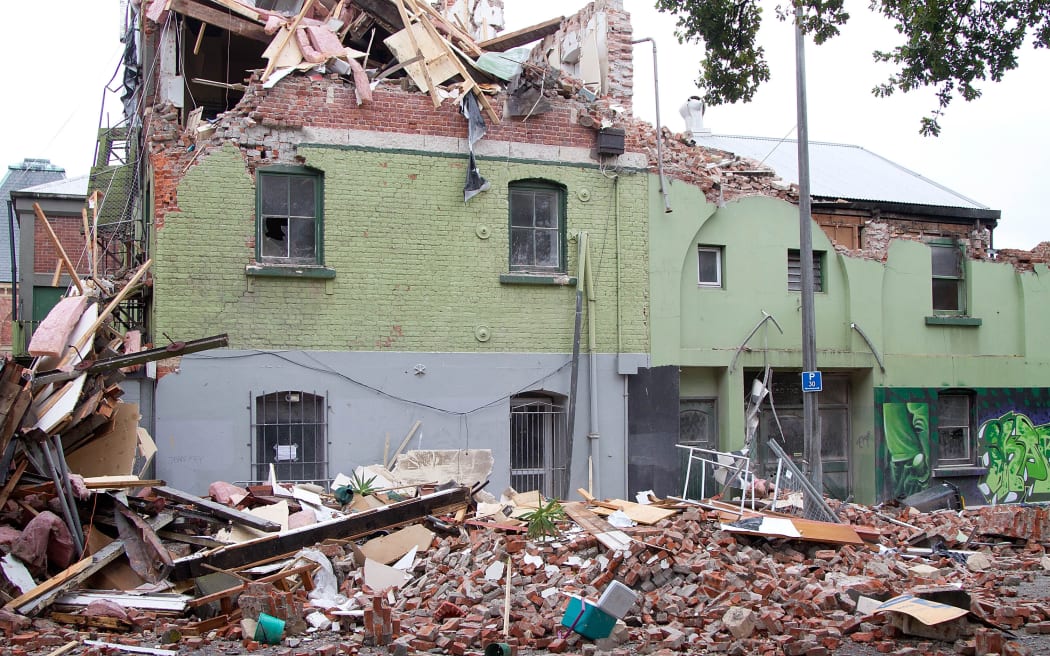
Badly damaged structures are surrounded in rubble in Christchurch on February 23, 2011 a day after the city was rocked by a 6.3 magnitude earthquake. Photo: AFP
The New Zealand public thinks threats to our national security are increasing, with natural disasters, misinformation, hacking and epidemics at the top of their list of concerns.
This was according to a recent government-led survey of more than 1000 people, prompted by the Royal Commission of Inquiry into the Christchurch terrorist attack.
At the top of the list, 87 percent of people surveyed said a natural disaster would present a threat within the next year, and 91 percent said within the next decade.
This was a lot higher than the global average of 69 percent.
The report said this was not surprising, as New Zealand is one of the most disaster-prone countries in the world for earthquakes, floods, droughts and volcanic activity.
Eighty percent of those surveyed thought a terrorist attack or violent extremism would become a real threat within the next 10 years.
At the bottom of the list was the risk of armed conflict with another country. Forty-two percent of people worried it would happen within the next decade - slightly lower than the global average of 46 percent.
When it came to confidence in the government to act against these threats, the best performing areas were natural disasters, terrorist attacks, and health epidemics.
These are all areas in which this government has had to demonstrate its ability to protect the population.
Respondents were not confident in the government's ability to deal with the threat of a nuclear, biological or chemical attack elsewhere in the world, or misinformation, or violent conflict between groups within New Zealand.
Only 20 percent of respondents said national security agencies currently shared enough information - almost double that amount (39 percent) disagreed. A third were on the fence.
More than half (59 percent) would like to know more about national security threats, they said.


